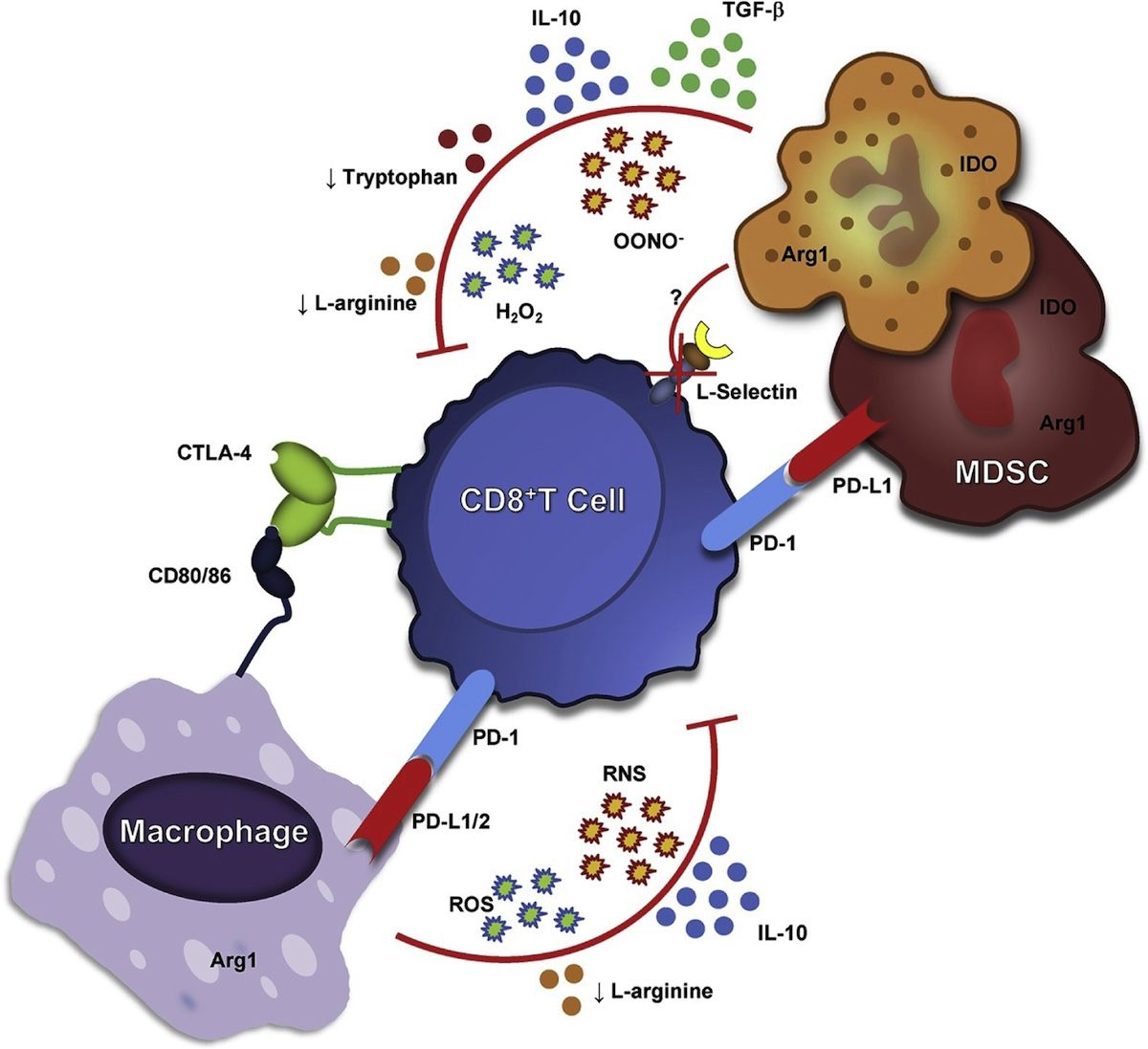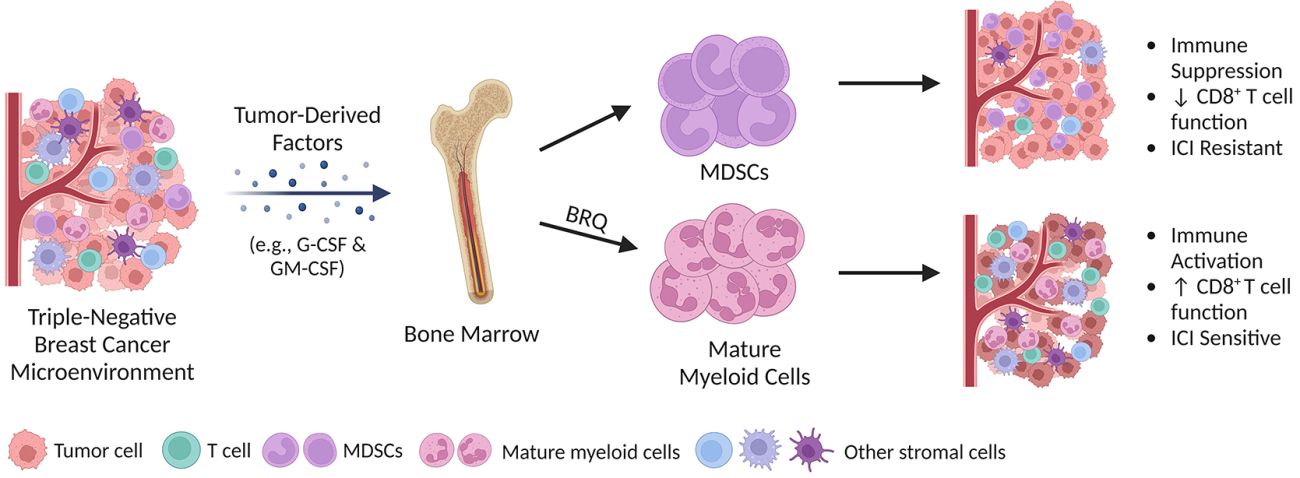The role of myeloid cells in tumor immunotherapy
Our laboratory broadly investigates fundamental basic and translational research concepts of the host-tumor interaction in solid cancer models, including:
- The biology and molecular biology of tumor progression and metastasis;
- Host or immunologic determinants that additionally influence and drive tumor escape, progression, and metastasis, particularly immune suppressive myeloid populations; and
- The development of innovative combination immunotherapy strategies that target, modulate, or impede such host or neoplastic events to augment antitumor immunity in these preclinical models with potential translational implications.
Specifically, we study how populations of myeloid cells – myeloid-derived suppressor cells (MDSCs) are induced in cancer and how macrophages acquire their pro-tumorigenic functions – mechanisms which yet remain incompletely understood.
To provide context for what we do, our laboratory follows the philosophy that science fuels the next generation of innovative cancer treatments. And over the years, we have come to realize the critical importance of our own immune system as a novel form of therapy, known as immunotherapy.
Tumor MicroenvironmentImmune Checkpoint InhibitorsMyeloid-Derived Suppressor Cells
One such type of immunotherapy makes use of agents coined immune checkpoint inhibitors (ICIs). These agents revitalize the killing power of immune populations known as CD8+ cytotoxic T cells. While remarkable responses have been seen across different human cancers using these agents, many patients still experience only a modest benefit over and above standard-of-care.
This is often because multiple factors dampen the effects of this type of immunotherapy and likely others, including the accumulation of such pro-cancerous myeloid populations, which is what my laboratory has been investigating for several years.
Like ‘kryptonite is to Superman,’ these myeloid populations weaken the destructive power of CD8+ cytotoxic T cells in the face of these potent immuno-oncology (IO) agents.
Thus, strategies that impede these myeloid populations are likely to bolster the activity of these IO agents by intensifying the anti-cancer actions of these CD8+ cytotoxic T cells. To tackle that bottleneck, our laboratory has developed unique approaches to target these myeloid cell types based on fundamental mechanisms of how they develop or how they acquire their pro-tumorigenic behavior.
So, given FDA-approval for the use of such IO-based approaches across a range of human cancers, we hope our work constitutes an important step forward in developing more effective and durable immunotherapy combinations.
Read the research: Abrams Lab publications
Connect with the Abrams Lab
Department of Immunology
Roswell Park Comprehensive Cancer Center
Elm and Carlton Streets
Buffalo, NY 14263

